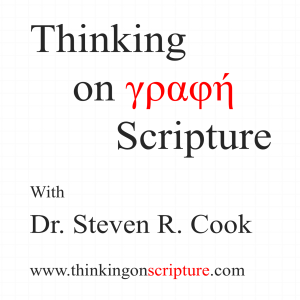
Saturday Oct 05, 2019
Introduction to Habakkuk
Author:
The book was written by Habakkuk, who is called a “prophet” in the opening verse (Hab 1:1). Habakkuk chapter 3 was written as a Psalm, “For the choir director, on my stringed instruments” (Hab 3:19). This might imply the prophet belonged to the Levitical priesthood which was known for their music and worship (Ezr 3:10; Neh 12:27).
Audience:
Habakkuk wrote to Judah about his conversation with God concerning why the Lord would use the wicked Babylonians to judge His people for their sins.
Date of Ministry:
Habakkuk wrote circa 609-606 B.C. This would be just prior the Babylonian invasion of Jerusalem in 605 B.C.
Historical Background:
Judah had experienced a time of great prosperity and spiritual reform under the reign of Josiah (640-609 B.C.). Josiah was regarded as a good king who obeyed the Lord (2 Ki 22:1-2; 23:25), and destroyed all the false idols and places of worship in Judah (2 Ki 23:1-25). However, the outward reforms did not lead to regeneration or revival among God’s people, and after Josiah was killed in battle by Pharaoh Neco (2 Ki 23:29), “the people of the land took Jehoahaz the son of Josiah and anointed him and made him king in place of his father” (2 Ki 23:30). Jehoahaz only reigned three months (2 Ki 23:31), and during that short time “did evil in the sight of the LORD, according to all that his fathers had done” (2 Ki 23:32). Afterwards, Pharaoh Neco appointed Jehoiakim as king in Judah (2 Ki 23:34-36), and he “did evil in the sight of the LORD, according to all that his fathers had done” (2 Ki 23:37). Jehoiakim led the people back into evil ways and practiced violence and injustice (Jer 22:13-21). This forms the background for Habakkuk’s complaints of violence in Judah (Hab 1:2-4, 9; 2:8, 17).
Outside the land of Judah, Assyria fell in 612 B.C. to the Babylonians and Medes under the leadership of Nabopolassar and Cyaxeres. A few years later, Egypt fell in 605 B.C. to the Babylonians under the leadership of Nabopolassar, who defeated Pharaoh Neco II at the battle of Carchemish.
Habakkuk’s Message:
Habakkuk witnessed great violence and corruption in Judah under the leadership of Jehoiakim; and this experience moved the prophet to question where was God and what was He doing to address it (Hab 1:2-4). The question of why God permits His people to experience evil has been posed by others throughout history (i.e. Job, Asaph, Jeremiah; Job 19:1-7; Psa 73:1-28; Jer 20:7-10). God revealed to Habakkuk His plan to use the Babylonians to judge Judah for their sin (Hab 1:5-11); but this raised another question in the prophet’s mind, which is why would a holy and righteous God use the violent and sinful Babylonians to judge a people less sinful than themselves (Hab 1:12—2:1)? God explained that even though He’s going to use the Babylonians as His disciplinary agent against Judah, He will also judge the Babylonians for their sins, and will do so in His time and way (Hab 2:2-20). In the midst of this judgment, God tells His prophet to remain faithful, along with the rest of the righteous remnant in Judah, saying, “the righteous will live by his faith” (Hab 2:4).[1] This is the key verse in Habakkuk. The idea is that the righteous will continue to be faithful to God and He will not kill them in the judgment, but will let them live, even though some of the righteous would go into captivity, such as Daniel and Ezekiel (who would serve as models of faith for Israelites living outside the land). Habakkuk responds in faith by offering a prayer-song of praise to God (Hab 3:1-19).
Outline:
- Introduction (Hab 1:1)
- Habakkuk presents his first complaint to God (Hab 1:2-4)
- God answers Habakkuk with His first solution (Hab 1:5-11)
- Habakkuk presents his second complaint to God (Hab 1:12—2:1)
- God answers Habakkuk with His second solution (Hab 2:2-20)
- Habakkuk responds in faith with a prayer-song (Hab 3:1-19)
[1] Other translations read, “the person of integrity will live because of his faithfulness” (Hab 2:4 NET), and “the righteous person will live by his faithfulness” (Hab 2:4 NIV). New testament writers cite this verse three times, each with a different emphasis (Rom 1:17; Gal 3:11; Heb 10:38). Paul cites it in Romans 1:17 to emphasize the righteousness that comes from God on the basis of faith. He cites it again in Galatians 3:11 to emphasize the life that comes from faith in God. And the writer to the Hebrews cites the verse in Hebrews 10:38 to emphasize the faithfulness of the believer that God rewards.
No comments yet. Be the first to say something!